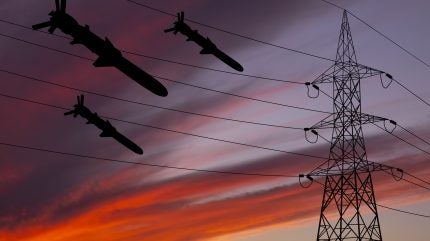
Ukraine’s energy infrastructure is set to face its toughest test yet as the country approaches the winter season, according to the International Energy Agency’s (IEA’s) most recent report.
Russia has intensified its strikes this year, focusing on Ukraine’s generation and transmission assets through a combination of missile and drone attacks designed to evade air defences.
At Power Summit 2024 in Athens earlier this year, Maksym Timchenko, the CEO of Ukraine’s largest energy provider, DTEK, said that he is “more confident than two years ago” about the country’s energy system, despite the recent ramp-up of Russian attacks.
IEA executive director Fatih Birol echoed the sentiment in a statement today (19 September), saying: “Ukraine’s energy system has made it through the past two winters thanks to the resilience, courage and ingenuity of its people and strong solidarity from its international partners.”
However, Birol added: “But this winter will be, by far, its sternest test yet.”
In its report titled Ukraine’s Energy Security and the Coming Winter, the IEA says that the resulting damage of recent attacks has been more extensive and sustained than during earlier phases of the war, despite continued international efforts to aid repair and reconstruction.
While Ukrainians have faced power challenges during the summer, warm temperatures and longer daylight hours have masked the full impact of the infrastructure losses.
The report says that diesel generators, which have helped to keep businesses open during the summer, are unlikely to meet the needs of the heating season beginning in October.
Entering the coldest months between December and March, when temperatures average between -4.8°C and 2°C, with a potential to drop to as low as -20°C, Ukraine is likely to see even greater strain on its already overstretched energy system.
Energy deficit is expected to grow this winter, with peak power demand projected to reach 18.5GW (compared with 12GW in the summer), far exceeding supply. Even with nuclear plants returning online and electricity imports from the EU, the IEA anticipates a 6GW shortfall in supply.
Gas supply is also set to be scarce, requiring the country to increase its imports. As the planned halt of Russian gas transit via Ukraine from January 2025 points to the end of potential backhaul from the EU, the report states that Ukraine may need to seek gas supplies from central and eastern Europe, which could raise procurement costs from transmission tariffs.
The report adds that the risk of extended blackouts and limited heating threatens to make parts of the country uninhabitable, potentially forcing another wave of refugees.
Earlier this week, DTEK unveiled plans to invest €140m ($155m) to develop a range of energy storage systems with 200MW of capacity to bolster Ukraine’s energy security ahead of the winter season.



